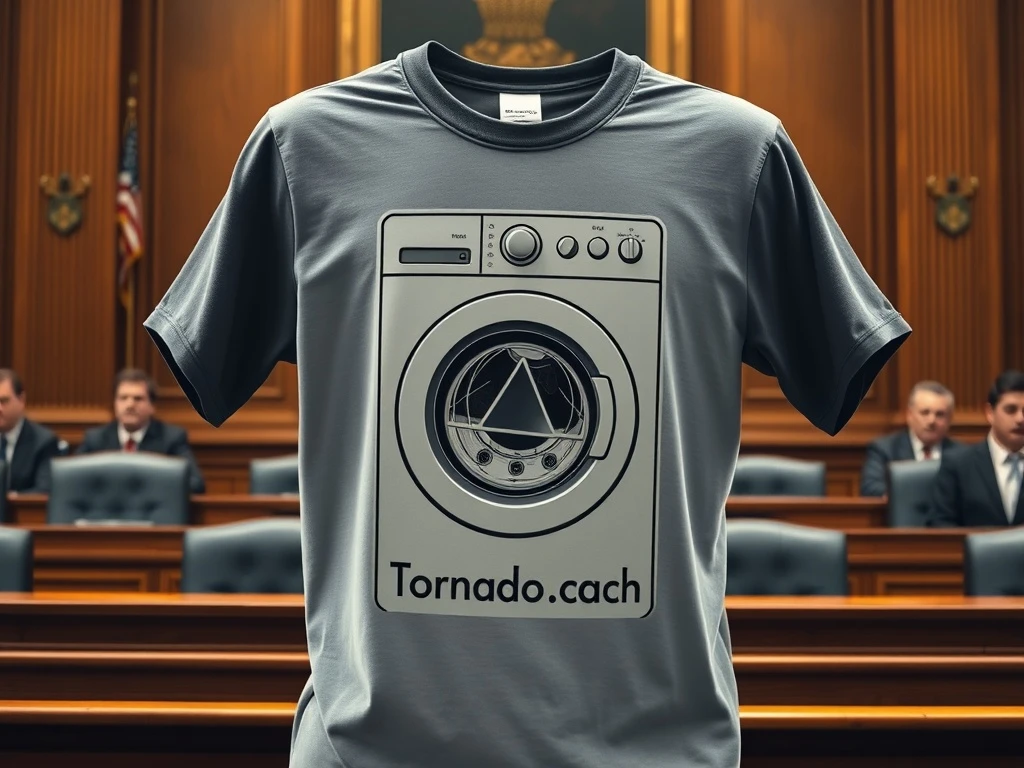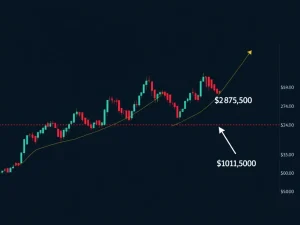Tornado Cash T-Shirt Sparks Legal Showdown: Meme or Money Laundering Evidence?

In a dramatic twist, a simple T-shirt has become the centerpiece of a high-stakes legal battle involving Tornado Cash, the controversial cryptocurrency mixer. Prosecutors claim the shirt—featuring a washing machine and the slogan ‘I keep my Ether clean with Tornado.cash’—proves the platform’s creators knowingly facilitated money laundering. But is this just a case of overzealous regulators misinterpreting crypto culture?
Tornado Cash T-Shirt: Harmless Meme or Smoking Gun?
The shirt, worn by co-founder Roman Storm at a 2019 crypto event, has taken on outsized importance in court. Prosecutors argue its imagery directly references money laundering, while the defense maintains it was simply an inside joke within the crypto community. This clash highlights the growing tension between:
- The playful, meme-heavy culture of cryptocurrency
- Increasing regulatory scrutiny of privacy tools
- The legal gray areas surrounding decentralized finance
DeFi Developer Liability: A Dangerous Precedent?
The case raises fundamental questions about responsibility in the DeFi space. Can developers be held accountable for how others use their open-source tools? The prosecution’s approach could set a concerning precedent for:
| Potential Impact | Description |
|---|---|
| Innovation Chill | Developers may avoid creating privacy-enhancing tools |
| Regulatory Overreach | Broad interpretation of money transmission laws |
| Legal Uncertainty | Blurred lines between tools and their applications |
Crypto Regulation at a Crossroads
This case represents a pivotal moment for crypto regulation. A conviction could lead to:
- Stricter AML/KYC requirements for DeFi projects
- Increased scrutiny of developer communications
- Potential migration of crypto projects to more lenient jurisdictions
FAQs
Q: What exactly is Tornado Cash?
A: Tornado Cash is a decentralized cryptocurrency mixer that obscures transaction trails by pooling and randomizing funds.
Q: Why is the T-shirt considered evidence?
A: Prosecutors argue its washing machine imagery and ‘clean Ether’ text demonstrate awareness of money laundering potential.
Q: What charges does Roman Storm face?
A: Storm is charged with money laundering, conspiracy to operate an unlicensed money transmitter, and sanctions violations.
Q: How could this case affect other DeFi projects?
A: A conviction might force developers to implement more compliance measures or face similar legal action.









